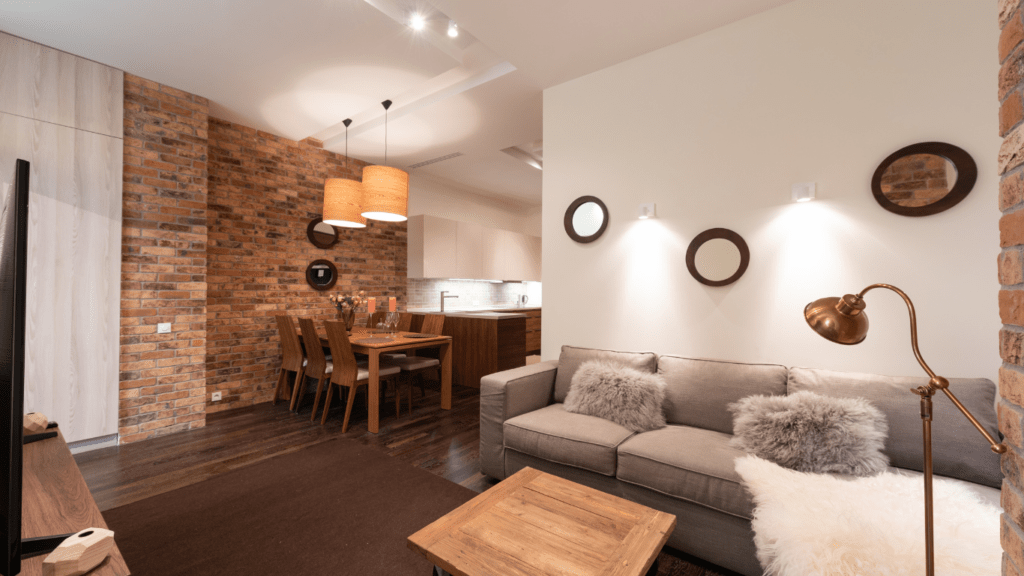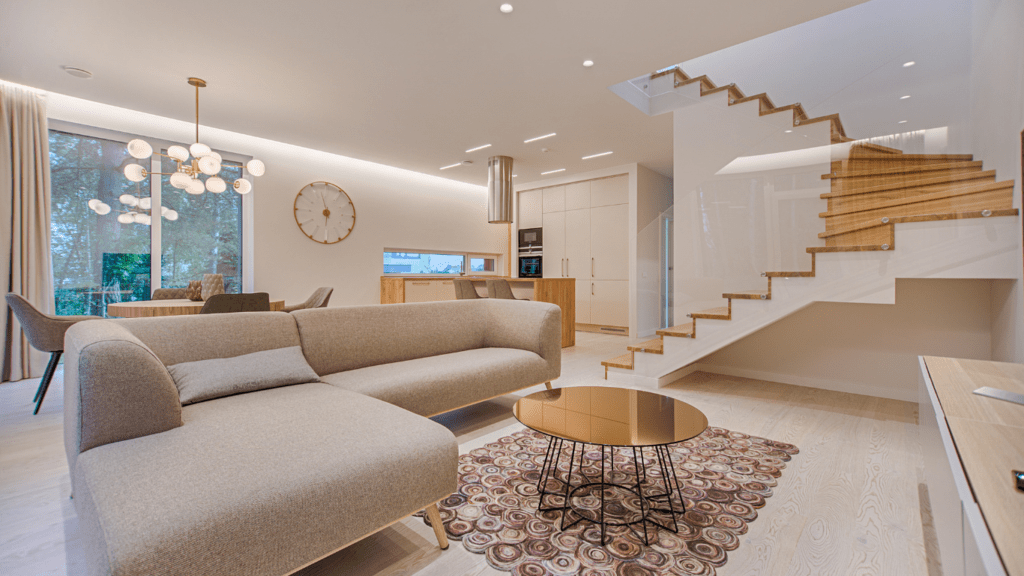As a seasoned expert in the real estate industry, I’ve witnessed firsthand the transformative impact of smart home technology on property values. In today’s fast-paced world, the integration of smart devices has become more than just a trend; it’s a significant factor that can enhance the appeal and worth of a property.
From smart thermostats that optimize energy efficiency to security systems that provide peace of mind, these technological advancements are reshaping the real estate landscape. In this article, I’ll delve into the profound influence that smart home technology exerts on property values.
By exploring the tangible benefits and potential drawbacks of incorporating these innovations into homes, we can better understand how they affect market perception and pricing. Whether you’re a homeowner looking to boost your property’s value or a prospective buyer evaluating smart features, this discussion will provide valuable insights into the evolving relationship between technology and real estate.
Impact of Smart Home Technology on Property Value
Discussing the influence of smart home technology on property values is crucial in today’s real estate landscape. Smart devices, ranging from energy-efficient thermostats to advanced security systems, are playing a pivotal role in reshaping the market.
Understanding how these technologies affect property values is essential for both homeowners seeking to boost their home’s worth and potential buyers evaluating properties with smart features. The evolving relationship between technology and real estate underscores the significance of embracing smart home solutions to enhance property value.
Factors Affecting Property Value with Smart Home Technology
Smart home technology plays a crucial role in determining property values in today’s real estate market. Understanding the factors that influence property value with the integration of smart devices is essential for both homeowners and potential buyers.
Location
Location remains a key determinant of property value, even with the integration of smart home technology. Properties in desirable neighborhoods or areas with good school districts tend to command higher prices, irrespective of the smart features they offer.
Additionally, the availability of high-speed internet and good connectivity infrastructure can further enhance the appeal of smart homes in certain locations.
Type of Smart Home Technology Installed
The specific types of smart home technology installed can significantly impact property value. High-demand smart features such as smart thermostats, security systems, lighting controls, and energy-efficient appliances can increase the overall value of a property.
On the other hand, outdated or less popular smart technologies may not have a substantial effect on property value and could even deter potential buyers. It’s crucial to invest in smart technologies that are in demand and offer practical benefits to maximize the property’s value.
Advantages of Incorporating Smart Home Technology for Property Value
Exploring the advantages of integrating smart home technology into properties is essential for understanding its impact on real estate value. As an expert in the field, I’ll delve into the key benefits that come with incorporating smart devices and systems, shedding light on why this is crucial for homeowners and prospective buyers alike.
- Enhanced Security: Implementing advanced security systems, like smart cameras and sensors, can significantly boost the security of a property. This heightened level of safety is a major selling point that can attract buyers concerned about protection for their families and belongings.=
- Energy Efficiency: Smart home technology enables efficient energy management through features such as smart thermostats and lighting controls. These energy-saving solutions not only reduce utility bills for homeowners but also appeal to environmentally conscious buyers looking for sustainable living options.
- Convenience and Comfort: Automation and remote control capabilities provided by smart devices offer unparalleled convenience and comfort to homeowners. From adjusting settings with a simple voice command to remotely monitoring the property, these features enhance the overall living experience and add value to the home.
- Increased Property Value: The integration of smart home technology can elevate the overall appeal and desirability of a property in the real estate market. Homes equipped with cutting-edge smart features often command higher prices and attract a broader range of buyers, ultimately leading to an increase in property value.
- Competitive Edge: In a competitive real estate landscape, properties with smart technology stand out from the rest. Having a smart home setup gives sellers a competitive edge by showcasing modernity and innovation, which can be a compelling factor for buyers looking for a future-ready home.
By recognizing and capitalizing on the advantages of incorporating smart home technology, homeowners can not only enhance their property’s appeal and value but also stay ahead in a technology-driven market. The relevance of smart features in influencing property value underscores the importance of embracing these innovations for a successful real estate investment.
Challenges of Implementing Smart Home Technology for Property Value
In implementing smart home technology for enhancing property value, a few challenges may arise that homeowners and sellers should consider.
- Compatibility Issues: Smart home devices often come from different manufacturers, leading to compatibility issues that may hinder seamless integration. Ensuring all devices work cohesively is crucial for providing a consistent and convenient experience for potential buyers.
- Initial Investment Costs: One primary challenge is the initial investment required to install smart technology in a home. While these features can boost property value, the upfront costs may deter some homeowners from making the investment, especially in older properties that may need extensive upgrades.
- Rapid Technological Advancements: The rapid pace of technological advancements means that what is cutting-edge today may become outdated in a few years. Keeping up with the latest trends and ensuring that installed smart devices remain current can be a challenge for property owners looking to maintain or increase their home’s value.
- Privacy and Security Concerns: Smart home devices collect data and are vulnerable to cybersecurity threats, raising privacy and security concerns for both homeowners and potential buyers. Addressing these issues through robust security measures and transparent data practices is essential to maintain trust and value in smart properties.
- User Experience and Education: Ensuring that residents understand how to use and maximize the potential of smart home features is crucial. Lack of user education can lead to underutilization of technology, diminishing its perceived value and impact on the property’s overall worth.
By addressing these challenges proactively, homeowners and sellers can navigate the complexities of integrating smart home technology effectively to enhance their property’s value and appeal in the real estate market.
Future Outlook for Smart Home Technology and Property Value
The future of smart home technology promises to reshape the real estate market, with smart devices becoming standard expectations in properties. As homes incorporate more advanced smart solutions, they are likely to see an increase in value, attracting buyers looking for modern, efficient, and secure living spaces.
The integration of smart home technology offers increased convenience, energy savings, and enhanced security, making such properties more marketable. As these technologies evolve, staying updated on the latest trends can significantly enhance property desirability and long-term value, positioning smart homes as sound investments for the future.




